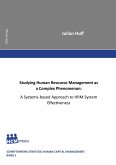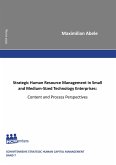In the past 30 years, corporate social responsibility (CSR), including the link between CSR and human resource management (HRM), has entered the agenda of managers and management researchers. In this context, "Responsible HRM" refers to the complete employee lifecycle, focusing on fair and transparent pay allocation and promotion decisions, especially with regard to discrimination based on demographic aspects such as gender, age, and race. Organizations can use Responsible HRM to tackle "grand challenges", such as (gender) inequality, within the organization and beyond, thus contributing to global problem solving. The empirical studies of this dissertation are at the intersection of CSR and HRM. They stress antecedents as well as the impact of CSR and Responsible HRM. Study 1 takes a broad and multifaceted perspective on CSR and its impact on organizational reputation. The remaining three studies focus on Responsible HRM and gender equality: Study 2 uses a comprehensive survey data analysis to explore the effects of the German "Transparency in Wage Structures Act", which aims to reduce the gender pay gap. Study 3 examines antecedents and outcomes of equality-enhancing HRM practices, especially pay transparency, by studying the relationships of works councils and management. Study 4 identifies the organizational advantages of promoting female employees into leadership positions, thus speaking to the problem of inequality in career opportunities.
Hinweis: Dieser Artikel kann nur an eine deutsche Lieferadresse ausgeliefert werden.
Hinweis: Dieser Artikel kann nur an eine deutsche Lieferadresse ausgeliefert werden.








